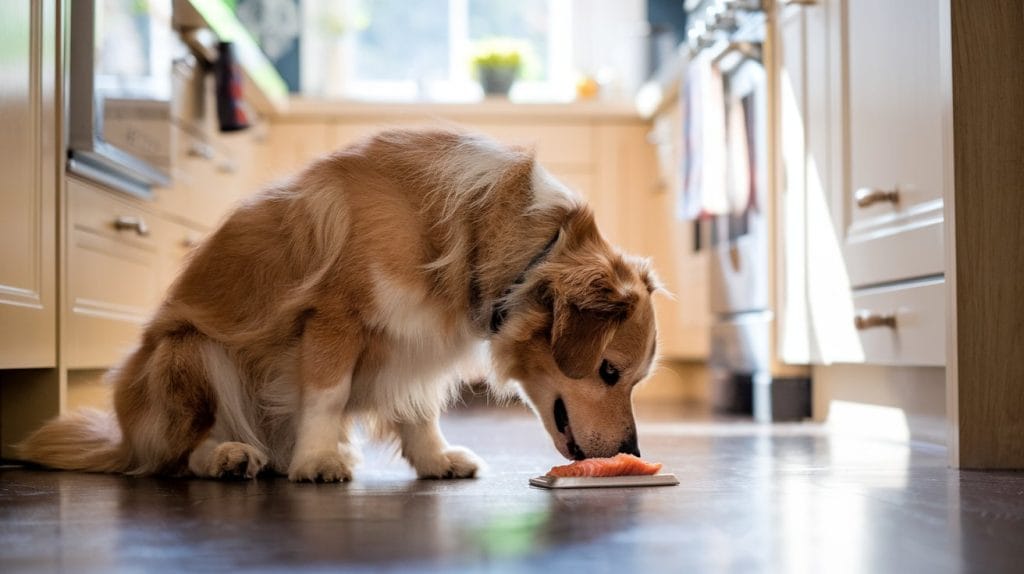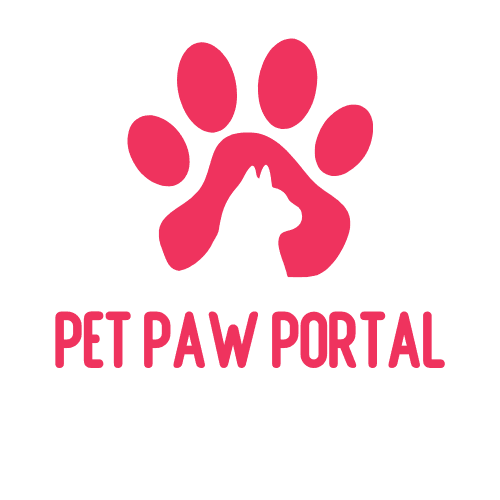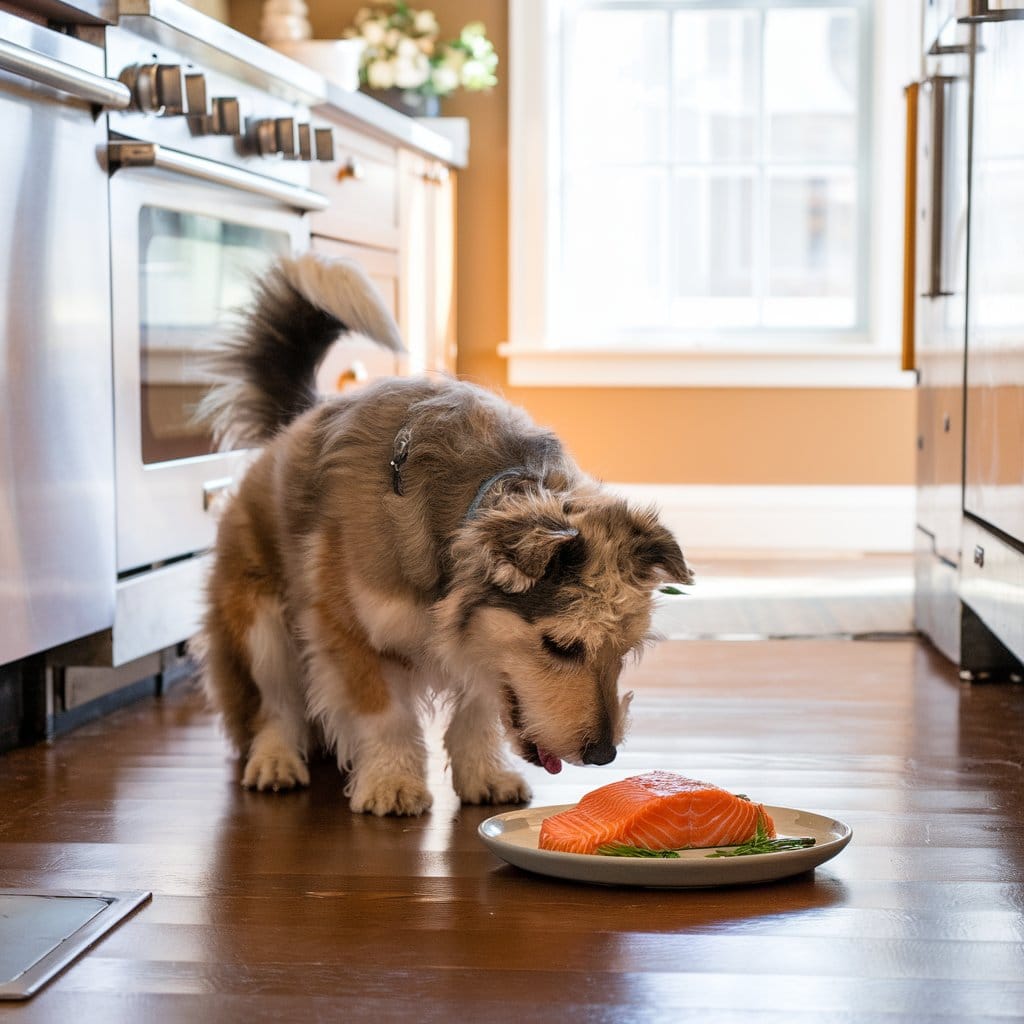As pet owners, we often wonder about the best foods to include in our furry friends’ diets. Salmon, a popular fish known for its health benefits in humans, has sparked curiosity among dog owners. Is Salmon Safe for Dogs?
This question has gained attention as more people seek nutritious options for their canine companions. Understanding the potential benefits and risks of feeding salmon to dogs is crucial for making informed decisions about their diet.
This article looks into the world of salmon for dogs, exploring its nutritional value and possible drawbacks. We’ll examine whether salmon is good for dogs and if dogs can eat salmon skin. Additionally, we’ll discuss safe ways to include salmon in a dog’s diet and highlight important considerations for pet owners. By the end of this article, readers will have a comprehensive understanding of how salmon fits into a canine diet and how to serve it safely to their four-legged friends.
Table of Contents
Nutritional Benefits of Salmon for Dogs
Salmon offers numerous nutritional benefits for dogs, making it a valuable addition to their diet. This fish is rich in high-quality protein, containing 22-25g per 100g, which supports muscle development and tissue repair. It’s also lower in fat compared to other protein sources, making it suitable for weight management.
One of the most significant advantages of salmon is its high omega-3 fatty acid content, particularly EPA and DHA. These essential fats play a crucial role in reducing inflammation, supporting cardiovascular health, and promoting cognitive function. They also contribute to healthy skin and a shiny coat.
Salmon is packed with important micronutrients. It’s abundant in B vitamins, including B12, niacin, and thiamin, which are involved in energy production and DNA synthesis. The fish also provides vitamin D, essential for bone health, and minerals like selenium and potassium. Selenium supports enzyme function and may protect against cell damage, while potassium helps maintain fluid balance and aids in muscle contraction.
Potential Risks of Feeding Salmon to Dogs
Is Salmon Safe for Dogs?
While salmon offers nutritional benefits, it’s crucial to be aware of potential risks. Raw or undercooked salmon can contain a parasite that causes salmon poisoning disease, which can be fatal if left untreated. This condition is mainly seen in certain regions of the US and Canada. Symptoms include vomiting, diarrhea, lethargy, and swollen lymph nodes.
Digestive upset is another concern when dogs consume too much salmon. The high oil content may lead to stomach issues in some dogs. Additionally, there’s a slight risk of mercury exposure, although studies suggest that mercury levels in most salmon-containing dog foods are generally safe for daily consumption.

To minimize risks, it’s advisable to feed dogs properly cooked salmon in moderation. If any unusual symptoms occur after salmon consumption, consulting a veterinarian promptly is recommended.
Safe Ways to Feed Salmon to Dogs
To safely feed salmon to dogs, it’s crucial to cook it thoroughly. Raw or undercooked salmon can contain parasites that cause salmon poisoning disease, which can be fatal. Cooking salmon to an internal temperature of 145°F kills harmful bacteria and parasites. It’s best to prepare salmon by removing the skin and bones, then simmering it until cooked through. Avoid using seasonings or oils, as these can be harmful to dogs.
When introducing salmon to a dog’s diet, start with small amounts as treats and gradually increase. For extra-small dogs (2-20 pounds), 1-2 ounces of cooked salmon per week is suitable. Medium dogs (31-50 pounds) can have 3-4 ounces weekly. Large dogs (51-90 pounds) may consume 4-6 ounces per week. It’s advisable to limit salmon intake to once a week or less and consult a veterinarian before making significant dietary changes.
Conclusion
Salmon has proven to be a nutritious addition to a dog’s diet when served correctly. Its high-quality protein, omega-3 fatty acids, and essential nutrients have a positive impact on canine health, supporting muscle development, skin health, and cognitive function. However, it’s crucial to remember the potential risks, particularly when serving raw or undercooked salmon. To ensure safety, thorough cooking and proper portioning are key steps to take.
In the end, moderation is the golden rule when incorporating salmon into a dog’s meals. By following the guidelines for safe preparation and appropriate serving sizes, pet owners can help their furry friends reap the benefits of this nutritious fish. As with any dietary change, it’s always a good idea to check with a vet before making salmon a regular part of your dog’s menu. This approach helps to make sure your pup stays healthy and happy while enjoying this tasty treat.
FAQs
What is the recommended amount of salmon to feed my dog?
When feeding your dog salmon, it’s best to cook it without seasonings and minimal or no oil, preferably using olive oil. You should limit the portion to no more than 100 grams (3.5 ounces) per 10 pounds of your dog’s body weight. Alternatively, you can use salmon as a meal topper, adding about 1 or 2 ounces to their regular food.
Can dogs safely eat cooked salmon?
Yes, cooked salmon is safe and actually the recommended way to serve salmon to dogs. Lightly cooking salmon by methods such as pan-frying, poaching, or baking, without adding salt or other flavorings, is ideal. Ensure all bones are removed before cooking to prevent choking hazards.
What should I do if my dog eats salmon accidentally?
If your dog consumes raw or undercooked salmon, it’s crucial to monitor them for signs of salmon poisoning disease, a severe condition that can be fatal if not treated within 14 days. This disease can affect dogs who eat salmon and other types of anadromous fish, which are known to swim upstream for breeding.
Is salmon a digestible food option for dogs?
Salmon is highly digestible and can be particularly beneficial for dogs with sensitive stomachs. It is gentle on the digestive system, and most of the nutrients in salmon are readily absorbed by a dog’s body, making it a nutritious food choice for all dogs.





